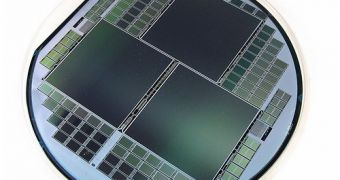Over the past two years, the overall performance of the IT market, and the semiconductor segment in particular, haven't exactly been glorious. In fact, after the very unfortunate year 2008, when sales were so weak that virtually all IT corporations saw revenues low enough to prompt massive redundancy plans, the market conditions only barely improved. Now, however, it seems that the economic recession is ready to go away, with revenues having once again begun to grow and the semiconductor segment seeing a good chance of not repeating last year's performance.
According to the Semiconductor Industry Associations, the total chip revenues for January were of $22.5 billion. This represents a 47% increase compared with last year's opening month, when the total revenues only amounted to as little as $15.3 billion. This shows a drastically different market environment compared with that of 2009.
Not only that, but January's total revenues are also superior to those of December, by 0.3% to be exact, even though December had the holiday season to boost its profits. The most likely reason for the 0.3% sequential increase is the growth of sales in the Asia Pacific region. This area's market grew by 2% compared with December, whereas Japan, Europe and the Americas all posted losses.
"Worldwide semiconductor sales in January increased significantly compared to one year ago, reflecting today's improving business environment for the industry," SIA (Semiconductor Industry Association) President George Scalise said. "We are currently seeing strength across a range of demand drivers for semiconductors, including personal computers, cell phones, automobiles, and industrial applications."
What remains to be seen is if the the newer, stronger and more energy-efficient processor and memory devices can keep propelling the market and further increase revenues. No doubt, the quality of the products at CeBIT will play a major role in this sector's future marketing performance.

 14 DAY TRIAL //
14 DAY TRIAL //